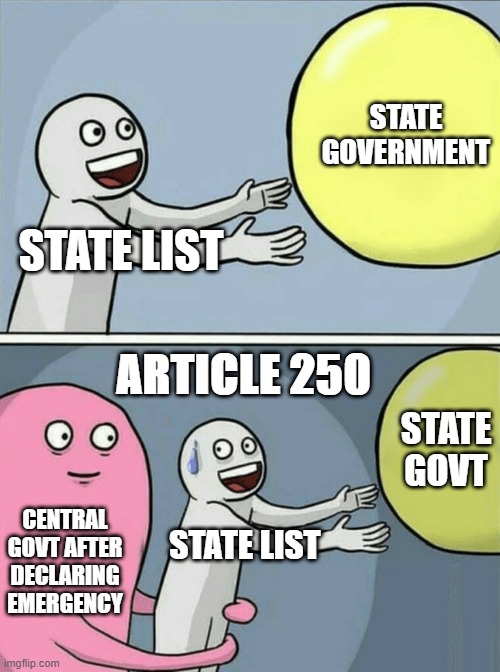On India’s 72nd Republic Day, and with the Central Government acting like the “jealous boyfriend” in the Monsoon Session, I have attempted to better understand the relationship between the Parliament and the State Legislatures as per our Constitution. A Thread. 1/11
To begin with, we have to remember that India is an example of a ‘holding together’ model of federalism where all the present states, came together to remain a unitary state which in turn, entrusts the coming together units with some powers to satisfy their emerging demands. 2/11
In contrast, the USA is a ‘coming together’ federalism, where relatively autonomous units, of a largely similar political culture came together to pool part of their previous sovereignty, to create a new federal state, by retaining considerable power. 3/11
As we all know, India has two levels of Governance – the Parliament to govern the entire nation, and the State Legislative Assembly to govern the respective States. Part XI of the Constitution deals with ‘Relations between the Union and the States’ 4/11
and the Seventh Schedule enumerates the matters for which legislative powers lies with the Parliament, the matters that the State Legislative Assembly is entrusted to legislate upon, and a Concurrent List. 5/11
To clarify, the Concurrent List contains the subject matters for which both – the Central Government and the State Government have the power to legislate upon. The Parliament also has the exclusive power to make laws for subject matters not contained in any of the Lists. 6/11
However, there are certain scenarios provided for in the Constitution when the Parliament can legitimately act as the “jealous boyfriend” and legislate upon a matter from the State List. 7/11
First is when 2/3 of the present and voting members of the Rajya Sabha resolve that it is “necessary or expedient in national interest” to make legislate on a State subject matter. 8/11 Animation Courtesy: @Sushmitta_R
Third is when two or more States jointly desire that a State subject matter is required to be regulated by a law passed by the Parliament, and have passed resolutions to that effect by all the Houses of the Legislatures of those States. 10/11
Lastly, the Parliament also has the power to make any law for the whole or any part of the territory of India for implementing any international treaty, agreement or convention or any decision made at any international conference, association or other body. 11/11
This was an assignment done for the 'People, Policy, Parliament' Fellowship by @_maadhyam_

 Read on Twitter
Read on Twitter



